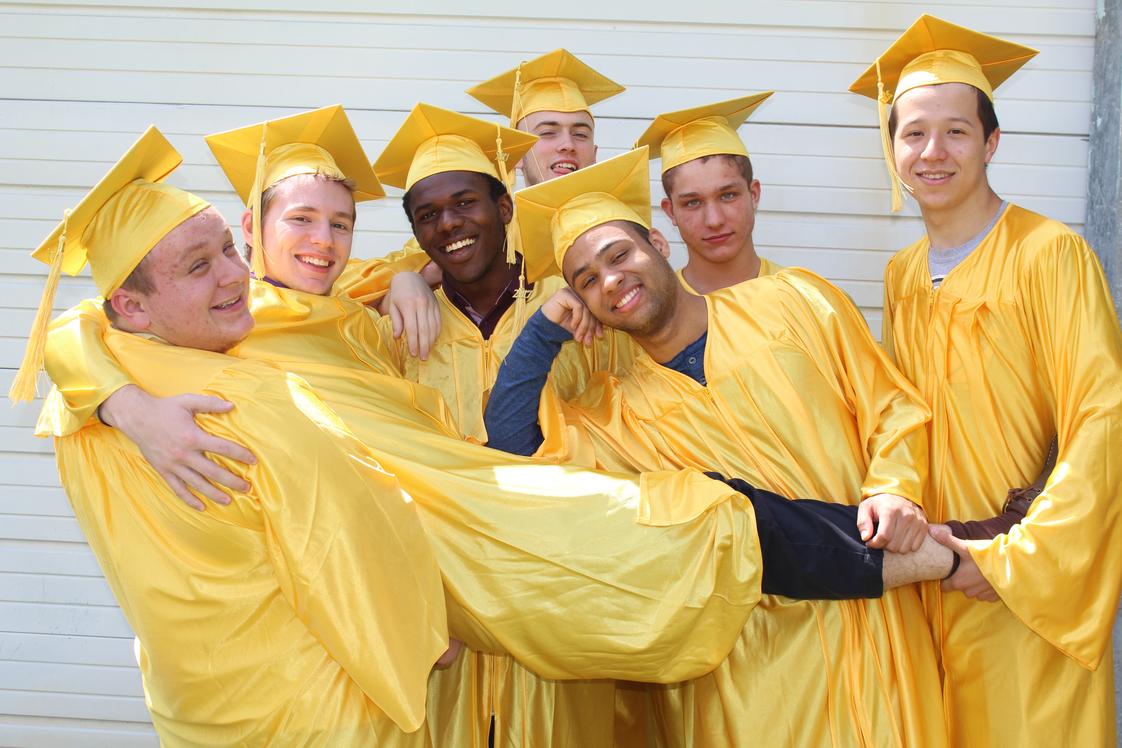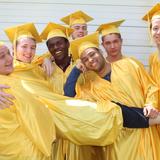For the 2026 school year, there are 3 private preschools serving 253 students in Garland County, AR.
The top-ranked private preschools in Garland County, AR include St. Johns Catholic School and Gospel Light Christian School.
The average acceptance rate is 98%, which is higher than the Arkansas private preschool average acceptance rate of 91%.
Top-Ranked Garland County Private Preschools (2026)
School
Location
Quick Facts
600 Garland Avenue
Hot Springs National Park, AR 71913
(501) 321-4871
Hot Springs National Park, AR 71913
(501) 321-4871
Gr: PK-12 | 112 students Avg. class size: 14 students Sports: 5 | Extracurrculars: 3 Tuition & acceptance rate listed
St. Johns Catholic School
(Catholic)
583 W Grand Ave
Hot Springs National Park, AR 71901
(501) 624-3171
Hot Springs National Park, AR 71901
(501) 624-3171
Gr: PK-8 | 133 students Sports: 4
St. Luke' S Episcopal Day School
Daycare / Preschool (Episcopal)
228 Spring St
Hot Springs National Park, AR 71901
(501) 623-1653
Hot Springs National Park, AR 71901
(501) 623-1653
Gr: K | 8 students
Overview
This County (Garland County)
This State (AR)
# Schools
3 Schools
Student Body:
# Students
253 Students
25,538 Students
% Average Students of Color
25%
21%
Academics and Faculty:
# Teachers
27 Teachers
2,007 Teachers
Average Student-Teacher Ratio
9:1
13:1
% Average Faculty w/Advanced Degree
93%
43%
Average Class Size
14 students
13 students
Tuition and Acceptance Rate:
Average Yearly Tuition Cost
$3,500
$8,401
Average Acceptance Rate
98%
91%
Students by Ethnicity:
Diversity Score
0.63
0.59
# American Indian Students
n/a
85 Students
% American Indian Students
n/a
n/a
# Asian Students
6 Students
946 Students
% Asian Students
2%
4%
# Hispanic Students
26 Students
1,200 Students
% Hispanic Students
10%
4%
# Black Students
5 Students
940 Students
% Black Students
2%
4%
# White Students
121 Students
14,565 Students
% White Students
48%
56%
# Hawaiian Students
n/a
15 Students
% Hawaiian Students
n/a
n/a
# Two or more races Students
n/a
n/a
% of Two or more races Students
n/a
n/a
# Others Students
95 Students
8,263 Students
% of Others Students
38%
32%
All Ethnic Groups
Extracurriculars and Sports:
Average Number of Extracurriculars
3 extracurriculars
6 extracurriculars
Average Number of Sports
5 sports
7 sports
Frequently Asked Questions
What are the top-ranked private preschools in Garland County, AR?
The top-ranked private preschools in Garland County, AR include St. Johns Catholic School and Gospel Light Christian School.
How many private preschools are located in Garland County?
3 private preschools are located in Garland County.
What percentage of private preschools are religiously affiliated in Garland County?
Which private preschools in Garland County are often viewed compared to one another?
Popular comparisons of private preschools in Garland County include: St. Luke' S Episcopal Day School vs. St. Johns Catholic School, St. Johns Catholic School vs. Gospel Light Christian School, St. Johns Catholic School vs. St. Luke' S Episcopal Day School
Recent Articles

Private School Fees Increase Mid-Year: A Parent Action Plan
A 2026 parent action plan for managing mid-year private school tuition increases, including contracts, negotiation tips, and financial options.

Private School Scholarship Scams & Red Flags to Watch Out For (2026 Guide)
Learn how to spot private school scholarship scams in 2026, including red flags, real examples, and expert tips to protect families.

Diversity in Private Schools: Progress and Obstacles in 2026
Explore how private schools are advancing diversity in 2026, key gains made, ongoing challenges, and what families should know.




